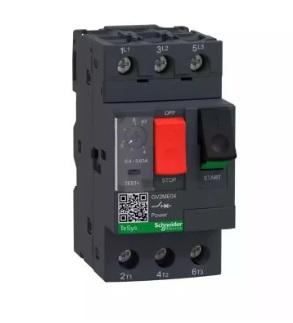Physical Address
304 North Cardinal St.
Dorchester Center, MA 02124
Physical Address
304 North Cardinal St.
Dorchester Center, MA 02124

Electrical systems have become an integral part of our day-to-day life. We depend on them to supply daily power to our homes, workspaces, and industrial sectors. Nevertheless, to ensure their safety, these electrical systems require appropriate protection.
We all have encountered an electrical overload at our house or workplace, haven’t we? These accidental events can be hazardous and expensive if the circuit protection needs improvement. But fret not, as there are cost-efficient remedies that can shield your circuits without straining your finances.
In this blog, we will discuss the significant differences between MCB breakers and fuses and determine whether MCB breakers are the most cost-effective circuit protection solution. We will explore the benefits of MCB breakers over traditional fuses, their cost-effectiveness, and why they are ideal for residential and commercial applications.
This blog is for everyone looking for a reliable and affordable circuit protection solution. So, let us dive in and learn more about the MCB breakers.
MCB Breakers vs Fuses: What are They?
Miniature Circuit Breakers, also known as MCBs, are electrical devices that guard an electrical circuit against potential damage caused by surplus current from an overload or short circuit. These devices interrupt the current flow when it exceeds a certain threshold. MCB breakers are resettable, implying that they can be switched back on after rectifying the fault.
On the contrary, fuses are employed to protect an electrical circuit by breaking the circuit when excess current flows through it. Fuses contain a wire or filament that melts when the current surpasses the fuse’s rated value, breaking the circuit. Fuses are not resettable, and they require replacement once damaged.
Cost-Effectiveness: MCB Breakers vs Fuses
When it comes to cost-effectiveness, there are several factors to consider before purchasing a suitable circuit protection device. Let us take a closer look individually:
The installation costs of MCBs are higher than those of fuses as it demands a separate panel and additional wiring, increasing the overall installation cost. Fuses, contrarily, are easy to install and require minimal wiring.
Miniature circuit breakers, or MCBs, are more cost-effective circuit protection devices in terms of maintenance costs as they are resettable. Conversely, fuses need replacement once damaged, increasing overall maintenance costs.
MCBs have a longer lifespan than fuses. They also offer better protection against electrical faults and reduce the risk of damage to electrical appliances.
MCBs are more energy-efficient than traditional fuses. They have a lower resistance than fuses, meaning they consume less energy. It further contributes to lower energy bills over time.
The Suitable Choice for Maximum Safety
When it comes to safety, MCB breakers are a better option than fuses. They offer better protection against electrical faults and reduce the risk of accidental electrical fires. Additionally, they offer better protection against electric shock.
Concluding Remarks
After evaluating all the factors, it is evident that MCB breakers are a more cost-effective solution for best circuit protection. While the initial installation costs may be higher, the lower maintenance costs and longer lifespan of MCBs make them a better long-term investment.
Summing up, when choosing between MCB breakers and fuses for circuit protection, it is essential to consider all the factors mentioned above. While fuses may seem more affordable initially, the higher maintenance costs and lower level of protection they offer make them a less cost-effective option in the long term.
MCBs are a more significant investment upfront, though they provide better security, lower maintenance costs, and are more energy-efficient, making them a more cost-effective solution for circuit protection. Make the safer choice by employing electrical equipment from a dependable source to avoid any unnecessary expenses after installation due to early damage.
